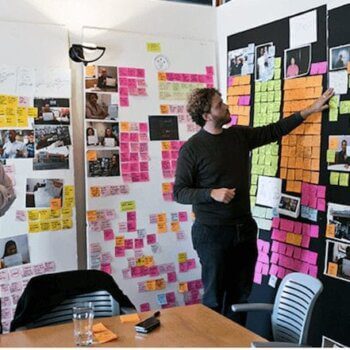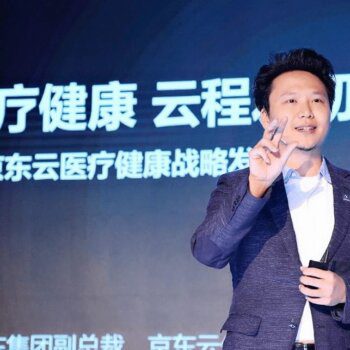Malaysian entrepreneur Kenneth Ho is most notably known as the founder & CEO of BEAM, a cross-border business matching engine that is focused on matching people to valuable connections and opportunities throughout Asia. A graduate from Monash University, Kenneth has always had a deep passion for technology, entrepreneurship and investments. Kenneth’s passion ultimately culminated into an incredible startup journey which to date has seen saw 2 successful exits in an education and machine learning business. Despite this, Kenneth’s commitment to creating value has led him to greater endeavours with BEAM, a startup that has really carved a place of its own in the entrepreneurial ecosystem of Southeast Asia. We are proud to have Kenneth with us, to get some personal words and insights.

How would you describe BEAM?
BEAM is a matching engine for the business world, powered by machine learning. Our vision is to connect the region’s business resources and opportunities to people in just a click.
How did things start with BEAM?
BEAM actually started as an event. It was titled “bridging entrepreneurs across Malaysia”. We started this event merely to meet investors and to broaden our professional networks. However on our first event, no investors came and mostly startup founders as well as people who wanted to start a company, turned up. In fact, only about 80 people came for the first event.
Because of that, we decided to continue running the second event which had over 200 people. One thing led to another and we continued running more events.
As the community grew, we found that many people were looking for help for their businesses. Many others were searching for opportunities.
We also found that there wasn’t an effective digital platform to connect entrepreneurs and people seeking help for their businesses in this part of the world.
This led us to create the BEAM App (beam.biz/app), which started out as a business matching and chat platform for people at the events.
Today the platform has grown significantly and has become more than just a chat app.
What was one of the biggest difficulties faced starting BEAM?
One of the biggest difficulties we faced in the early days was capital. As BEAM didn’t have a strong business model, this made it particularly difficult for us to generate revenue in the early days. Most of the initial capital was injected by me and we had to figure out all kinds of ways to boostrap the business to move the needle to a point where we could receive some capital injection from investors.
Thanks to many supportive people in the community, we managed to get a couple of deals in the early days that allowed us to generate some cashflow. We also had the support of an awesome investor who took a leap of faith with us.

What is the end goal for BEAM?
Our goal is to turn BEAM into a global matching engine for opportunities.
How many users have signed up for BEAM so far?
Today, we have about 150,000 users registered.
How do you see the development of entrepreneurship in Asia?
Entrepreneurship is on the rise, especially in SouthEast Asia. Huge amounts of capital are pouring into this part of the world, and more and more businesses are going digital. Overall infrastructure across most SEA countries are improving, making it easier for business to take place.
I believe this part of the SouthEast Asia will be a very different place in the coming 5 years, especially with the advent of China and more American investment firms supporting technology companies today..
Were there anything that disappointed you initially?
It was really hard generating revenue in the beginning. And as you know, no revenue means no additional capital injection from more sophisticated investors. We also had team members leaving which hurt pretty bad.

Do you think its hard to be an entrepreneur in this part of the world?
I think it’s a good time to be an entrepreneur, especially in this part of the region where doing business is easier, there’s an increasing number of people willing to spend online, and much more capital is pouring into this part of the world. However that being said, competition is also stiffer.
What is your personal definition of success?
To do what you love, for the people you love, with the people you love. I particularly like the concept of “ikigai”.

What is your proudest moment with your startup?
When we get a random text or email of someone who thanks us for creating this platform as they were able to get a deal, investment or opportunity from it. I am always glad to know we were able to help people progress a little further in their lives or careers.
In your opinion, what are the keys to entrepreneurial success?
There are too many factors that attribute to success. You need a great team with strong leadership. You need a good product that truly brings value and is useful to people. You need good marketing and a business model that can eventually be sustainable. You need lots of support. You need capital. The list goes on. However with all else being present, the determining factor to me would just be sheer persistence.
Any parting words of wisdom for entrepreneurs out there from your personal experience?
Become an entrepreneur to solve a problem, to right a wrong in the world. Don’t do it for glamour, there’s little of it. Don’t do it for money, it’ll take a while before you start making decent cash. Don’t do it because you don’t want to work for others, you’ll end up working for more people as an entrepreneur.

Connect
https://facebook.com/beamstart
https://linkedin.com/company/beamconnect





























